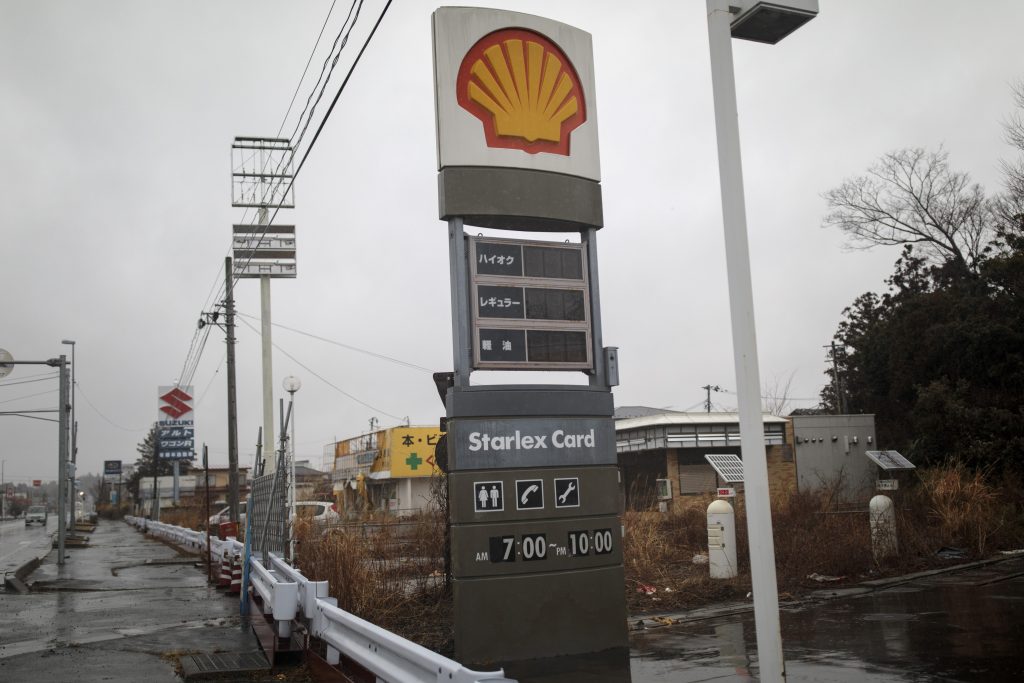
- ARAB NEWS
- 18 Jul 2025

TOKYO: Gas stations in Japan, for long an essential part of regional infrastructure, face rapid falls in gasoline demand due to the graying and shrinking population and the novel coronavirus pandemic
As a result, they are pursuing diversification. In April, deregulation under the revised Fire Service Act allowed gas stations to display and sell within their premises, products such as regional specialties.
Still, small and midsize operators, which account for the majority of gas stations across the nation, may lack the money to branch out into new business lines, posing a challenge for industry revival.
“The coronavirus crisis caused the equivalent of 10 years of falling demand,” laments a senior official of the Petroleum Association of Japan, which consists of wholesalers.
Domestic demand for gasoline was already on the decline, reflecting in part improvements in the fuel economy of automobiles and reduced vehicle ownership among young people.
The number of gas stations in Japan stood at about 30,000 at the end of March 2019, down by half from some 60,000 at the end of March 1995.
According to the National Association of Gas Station Cooperatives, gasoline demand between mid-April and late May this year, when a state of emergency was in place to deal with the coronavirus crisis, plunged 30 percent from a year before.
Demand has rebounded since the emergency was fully lifted on May 25, but the automobile movements may continue to be curbed due to concerns over a second wave of coronavirus infections and the wide use of teleworking.
Tsutomu Sugimori, chairman of the Petroleum Association of Japan, said that over the medium and long term, gasoline demand “is unlikely to recover to the levels before the coronavirus outbreak.”
“If demand remains weak, we may see a series of bankruptcies of gas stations in autumn and beyond,” a senior official of the gas station association, adding that inquiries from gas stations seeking advice on financing have increased.
Yamauchi Sekiyu, a gas station operator based in Saijo, Ehime Prefecture, western Japan, started in mid-April exhibiting and selling used automobiles at two of its three gas stations. The company previously focused on online sales, keeping vehicles at a different location, but it now has three vehicles on display at each of the two gas stations.
“Many customers still don’t know they can buy vehicles at our stations,” Akimasa Yamauchi, 62, president of Yamauchi Sekiyu. Customer inquiries have increased since the company started displaying vehicles.
Noting that profits from vehicle sales are “an order of magnitude larger” than those from refueling and car washes, Yamauchi said, “We want to build (vehicle sales) into a top moneymaker.”
The deregulation in April also allowed workers at self-service gas stations to manage customers’ use of oiling devices with tablet computers while engaging in other work at the same time.
A gas station operator in Sendai, Miyagi Prefecture, northeastern Japan, has introduced a tablet at one of its outlets on a trial basis.
Under previous regulations, two or more personnel were assigned to the gas station.
Using a tablet, one worker will now be able to take care of all operations at the station, cutting personnel costs.
As the whole system requires an estimated 1.5 million yen in initial investment, however, only gas station operators with sufficient financial and human resources can take steps for diversification.
About 70 percent of all gas stations across Japan are small and midsize operators, such as family-owned businesses.
“In the countryside in particular, many are small businesses and have a hard time (turning profits),” an industry source said.
With small operators in difficulties, the nationwide network of gas stations is creaking loudly.
JIJI Press